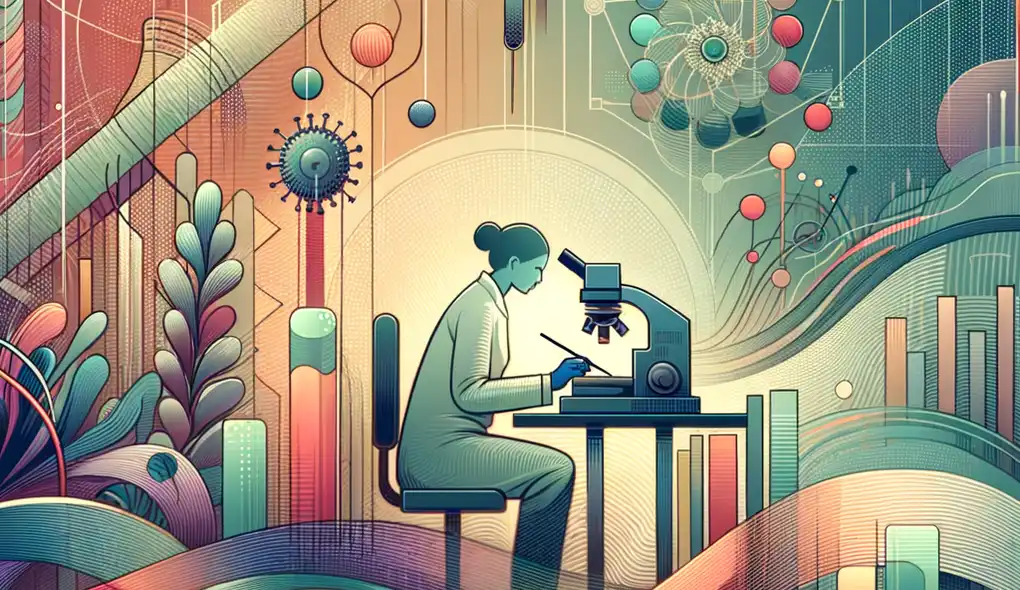Describe a situation where you had to resolve conflicts or disagreements within a team. How did you handle it?
Microarray Analyst Interview Questions
Sample answer to the question
In one project, there was a disagreement among team members regarding the interpretation of microarray data. I handled it by organizing a meeting to discuss the different perspectives and gather input from everyone. We carefully reviewed the data and analyzed it from multiple angles. Through open and respectful communication, we were able to find common ground and reach a consensus on the interpretation. I then facilitated a brainstorming session to generate potential solutions and recommendations. By encouraging everyone to share their ideas, we were able to come up with a collective solution that satisfied all team members.
A more solid answer
In a complex microarray data analysis project, we encountered conflicts regarding the interpretation of the results. I took the initiative to schedule a team meeting to address the disagreements and ensure that everyone's opinions were heard. During the meeting, I facilitated a discussion, encouraging team members to present their arguments based on scientific evidence and statistical analysis. We examined multiple perspectives and conducted further experiments to validate the findings. Through active listening and effective communication, we were able to reach a consensus on the interpretation. To prevent future conflicts, I implemented a collaborative approach, where team members were encouraged to provide feedback and suggestions throughout the analysis process. This promoted a culture of open communication and constructive criticism, ultimately enhancing the quality of our work.
Why this is a more solid answer:
This is a solid answer because it provides specific details about the conflict resolution process, demonstrates the candidate's expertise in microarray analysis, and showcases their leadership abilities in facilitating discussions and implementing a collaborative approach. However, it could still benefit from further elaboration on the specific actions taken and the impact of their approach on the team dynamics.
An exceptional answer
During a critical microarray data analysis project, a conflict arose between two team members regarding the interpretation of an unexpected pattern in the gene expression data. Recognizing the importance of resolving this conflict promptly, I initiated a one-on-one meeting with each team member to understand their perspectives and concerns. Through active listening and empathetic communication, I identified the underlying causes of the disagreement and helped normalize their emotions. To address the conflict, I proposed a data-driven approach where we explored alternative statistical models and performed additional experimental validations. This approach not only allowed us to objectively evaluate the validity of each interpretation but also fostered a sense of collaboration and curiosity among team members. By involving the entire team in the analysis and interpretation process, we created a supportive environment where different viewpoints were valued and conflicts were resolved through evidence-based discussions. As a result, we successfully reached a consensus and published our findings, highlighting the importance of collaboration in scientific research.
Why this is an exceptional answer:
This is an exceptional answer because it goes above and beyond in describing a complex conflict resolution situation within a microarray data analysis project. The candidate showcases their skills in effective communication, empathy, and leadership. They also demonstrate a deep understanding of statistical analysis and the scientific research process. By involving the entire team and fostering a collaborative environment, they were able to resolve the conflict and achieve successful outcomes. The answer highlights the candidate's ability to handle difficult situations and contribute to the advancement of scientific knowledge.
How to prepare for this question
- Reflect on your past experiences working in teams and identify situations where conflicts or disagreements arose. Consider the specific steps you took to address and resolve these conflicts.
- Familiarize yourself with different conflict resolution techniques, such as active listening, empathy, and negotiation. Understand when and how to apply these techniques effectively.
- Highlight your expertise in microarray data analysis and statistical analysis. Prepare examples of how you have applied these skills to resolve conflicts or disagreements within a team.
- Emphasize your communication and leadership abilities. Discuss specific instances where you have facilitated discussions, encouraged collaboration, and promoted open communication.
- Demonstrate your commitment to the scientific research process and the importance of evidence-based decision-making. Discuss how you have used data-driven approaches to resolve conflicts and achieve successful outcomes.
What interviewers are evaluating
- Conflict resolution
- Communication skills
- Collaboration and teamwork
Related Interview Questions
More questions for Microarray Analyst interviews